Run out of coriander seeds? Use cumin as your immediate 1:1 substitute for most savory dishes—it offers the closest earthy, warm flavor profile. For precise culinary solutions, here are 7 expert-approved coriander seed alternatives with exact substitution ratios and flavor impact analysis to rescue your recipe without compromising quality.
Top Coriander Seed Substitutes with Exact Ratios

Coriander seeds (Coriandrum sativum) deliver a unique warm, nutty profile with citrus and sage notes essential in global cuisines. When unavailable, these substitutes maintain recipe integrity while adapting to your pantry's reality.
Best Coriander Seed Substitutes by Culinary Application

1. Cumin (Immediate 1:1 Replacement)
The top substitute for most savory applications, offering earthy warmth with subtle bitterness matching coriander's depth. Professional chefs prefer toasted cumin for enhanced complexity.
- Use 1:1 ratio (slightly reduce for delicate dishes)
- Ideal for: Indian curries, chili powders, meat rubs, Middle Eastern dishes
- Chef's note: Add ¼ tsp lemon zest to mimic coriander's citrus notes
2. Caraway Seeds (European Dishes)

Nutty and peppery with greater intensity than coriander—requires ratio adjustment.
- Use 1:0.5 ratio (half the coriander amount)
- Perfect for: Rye bread, sauerkraut, German stews, goulash
- Pro tip: Toast 2 minutes to mellow sharpness
3. Fennel Seeds (Mediterranean Cuisine)

Sweet with mild licorice notes—ideal when coriander's citrus element isn't critical.
- Use 1:0.75 ratio (¾ the coriander amount)
- Best applications: Tomato sauces, roasted vegetables, Italian sausages
- Flavor hack: Combine with ⅛ tsp orange zest for closer match
4. Garam Masala (Pre-Mixed Solution)
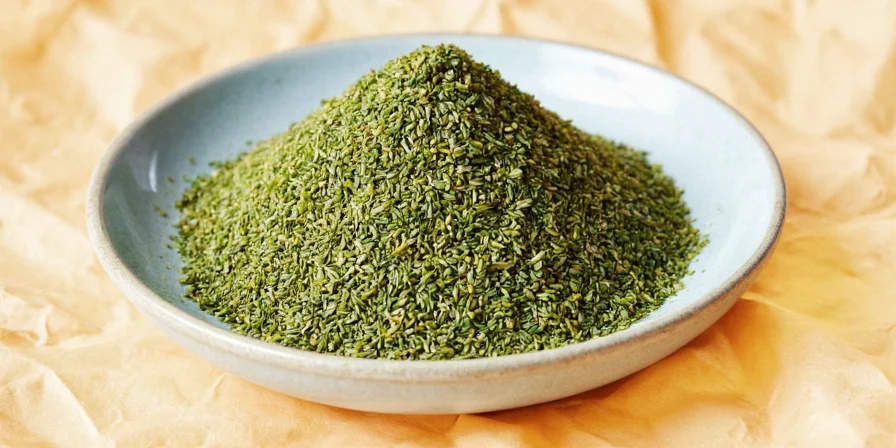
Contains coriander plus complementary spices—requires careful measurement.
- Substitute 1:0.5 ratio for ground coriander
- Optimal use: Curries, lentil dishes, rice pilafs
- Warning: Avoid in dishes already containing other garam masala components
5. Anise Seeds (Baking Focus)
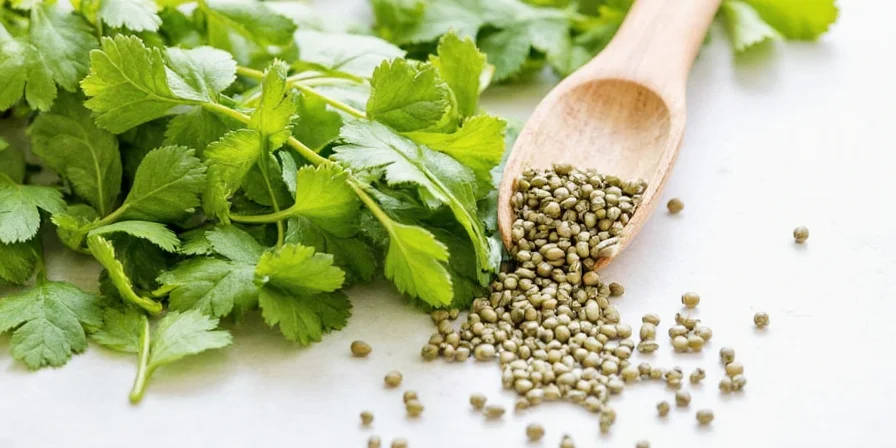
Strong licorice flavor demands conservative usage.
- Use 1:0.25–0.33 ratio (¼ to ⅓ of coriander amount)
- Ideal for: Breads, cookies, biscotti, herbal teas
- Caution: Overuse creates dominant anise flavor
6. Celery Seeds (Pickling & Salads)

Grassy, salty profile works in specific applications.
- Use 1:0.5 ratio (half the coriander amount)
- Best for: Pickling brines, coleslaw dressings, potato salads
- Professional tip: Combine with ⅛ tsp mustard seed for complexity
7. Ground Coriander (Pantry Shortcut)
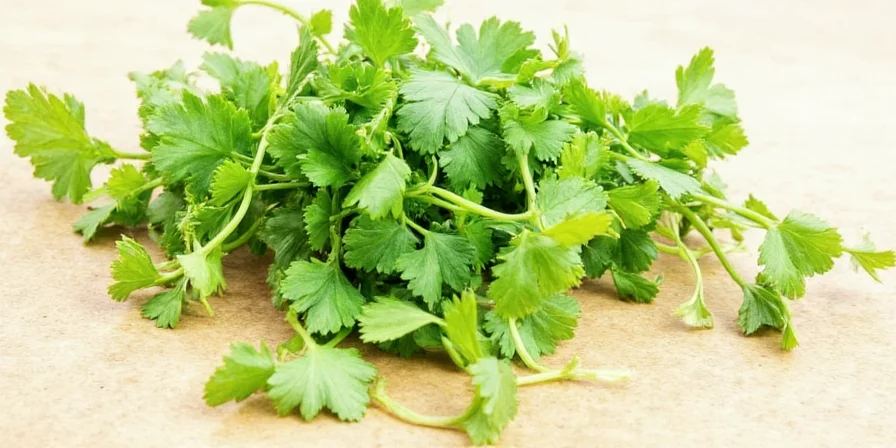
When whole seeds are unavailable but ground version remains.
- Use 1:0.75 ratio (¾ the whole seed quantity)
- Critical technique: Add during last 10 minutes of cooking
- Conversion: 1 tbsp whole seeds = 2.5 tsp ground coriander
Coriander Substitute Comparison Chart
| Substitute | Flavor Accuracy | Best Culinary Applications | Precision Ratio | Professional Modification |
|---|---|---|---|---|
| Cumin | ★★★★☆ | Curries, chili, meat dishes | 1:1 | Add lemon zest for citrus notes |
| Caraway | ★★★☆☆ | Rye bread, stews, sauerkraut | 1:0.5 | Toast to reduce bitterness |
| Fennel | ★★★☆☆ | Mediterranean dishes, tomato sauces | 1:0.75 | Pair with citrus zest |
| Garam Masala | ★★★★☆ | Indian curries, lentils | 1:0.5 | Avoid additional warming spices |
| Anise | ★☆☆☆☆ | Baking, desserts | 1:0.25–0.33 | Use sparingly in sweet applications |
| Celery Seed | ★★☆☆☆ | Pickling, salads, dressings | 1:0.5 | Combine with mustard seed |
| Ground Coriander | ★★★★★ | Spice blends, finishing touch | 1:0.75 | Add late in cooking process |
Professional Substitution Protocol

- Immediate Flavor Test: Mix substitute with 2 tbsp of your base liquid before adding to dish
- Regional Authenticity Guide: Match substitute to cuisine (cumin→Indian/Middle Eastern, caraway→European, fennel→Mediterranean)
- Timing Matters: Whole seed substitutes should be added at same stage as coriander seeds
- Flavor Compensation: Add citrus zest when using non-citrus substitutes to replicate coriander's bright notes
- Potency Adjustment: Reduce quantity by 25% when using older spice stocks
Culinary Impact Analysis: When Substitutes Transform Dishes
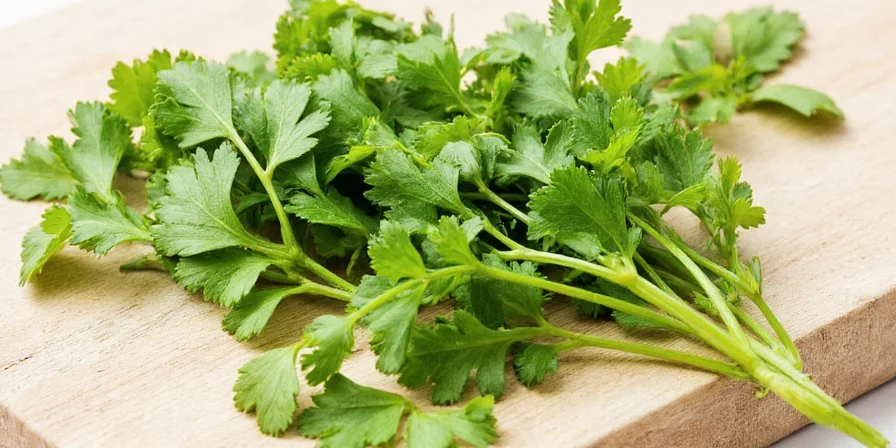
Understanding substitution consequences prevents culinary disasters. In Indian cuisine, replacing coriander with cumin shifts flavor toward North African profiles but maintains structural integrity. In German sauerkraut, caraway substitution preserves authenticity while altering intended balance. The critical distinction lies between intentional flavor evolution versus accidental compromise—professional cooks recognize when a substitute creates a new tradition versus ruining a dish's essence. This expertise transforms pantry limitations into creative opportunities while honoring recipe fundamentals.
Emergency Substitution Guide
What's the fastest coriander seed replacement for dinner tonight?
Use cumin at 1:1 ratio for savory dishes. Toast 1 tsp cumin seeds in dry pan for 60 seconds, then crush. Add ¼ tsp lemon zest to replicate coriander's citrus notes. Works instantly in curries, chili, and meat dishes.
Which substitute works best when baking without coriander seeds?
Fennel seeds at 3:4 ratio (¾ the coriander amount) with ⅛ tsp orange zest added delivers closest baking performance. For stronger licorice notes in biscotti or spice cakes, use anise seeds at 1:4 ratio (¼ the coriander amount).
How to substitute coriander seeds in garam masala blend?
Use pre-made garam masala at half the coriander seed quantity. For homemade blends, replace 1 tsp coriander seeds with ½ tsp cumin + ¼ tsp cardamom + ¼ tsp cinnamon. Toast all spices before grinding for authentic flavor integration.
Why does my substitute make food taste bitter?
Overuse of caraway or cumin causes bitterness. Reduce quantity to 40% of original coriander measurement. Toast spices for 60 seconds to mellow harsh notes, and add ⅛ tsp sugar to neutralize bitterness without altering flavor profile.
What's the shelf life difference affecting substitution success?
Coriander seeds maintain potency for 18-24 months. Cumin degrades faster (12-18 months), requiring 10-15% quantity increase for older stocks. Always store substitutes in airtight containers away from light. Test spice potency by rubbing between fingers—if aroma is weak, increase substitution ratio by 20%.

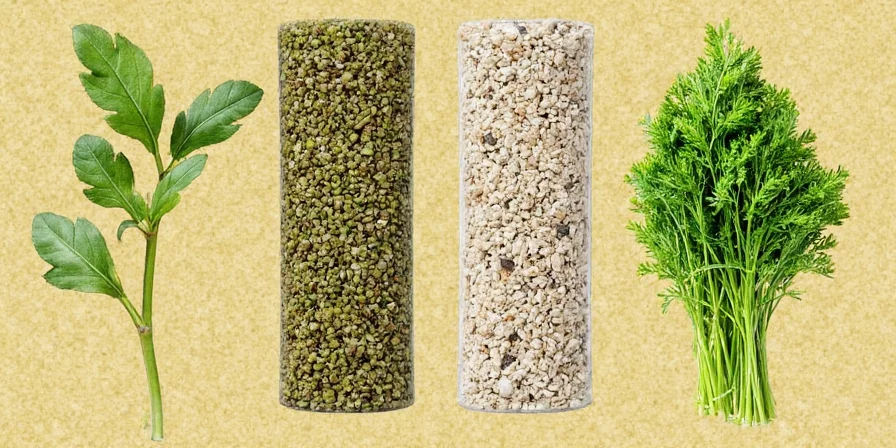









 浙公网安备
33010002000092号
浙公网安备
33010002000092号 浙B2-20120091-4
浙B2-20120091-4